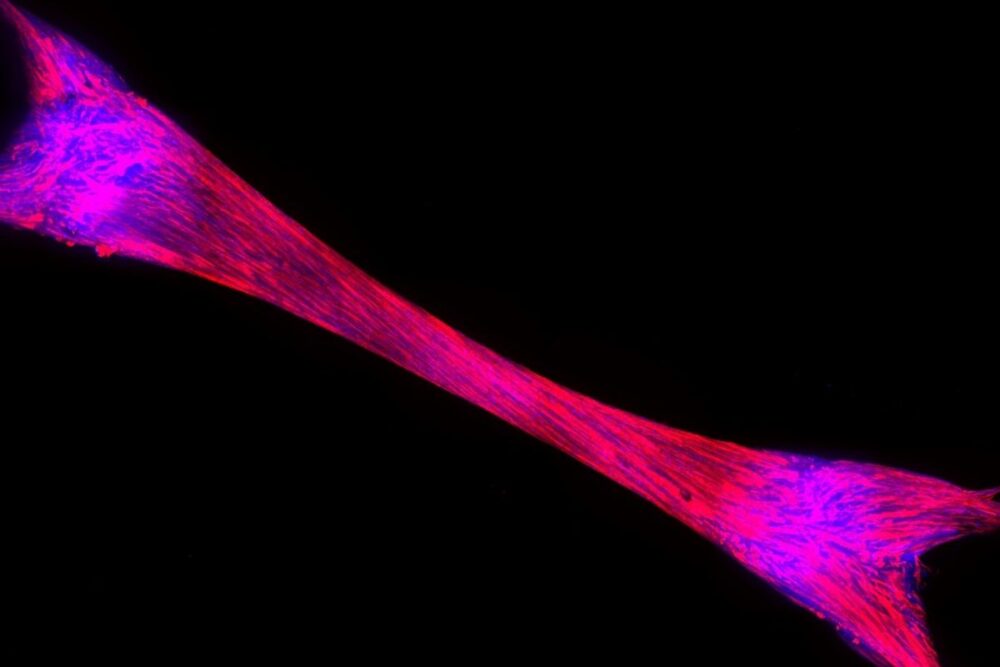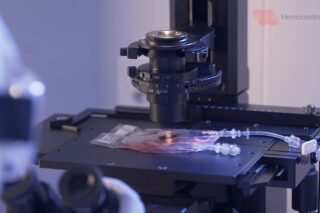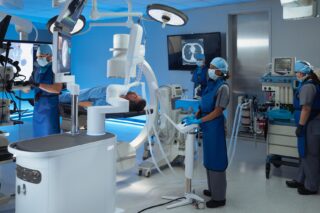A new drug discovery program is to be launched at the end of this year by a company that has been working within the cultivated meat industry. ProFuse Technology has adapted its know-how for optimizing meat production to develop a platform for the discovery of drugs targeting human muscle atrophy and related conditions.
Now the drugs discovered using this platform are expected to benefit patients suffering from muscle loss associated with the new, much-heralded weight-loss injections.
Guy Nevo Michrowski, CEO and Co-Founder of Israeli start-up ProFuse Technology, says:
“We believe that our muscle-preserving drugs could complement GLP-1 weight-loss treatments by addressing one of their major side effects – loss of lean muscle mass. “This could make weight-loss therapies safer and more sustainable, especially for older adults or those with pre-existing muscle conditions.”
In-vitro Meat Cultivation
ProFuse was founded in 2021, based on research from the Weizmann Institute of Science. Its technologies are supplied to customers within the cell-cultivated meat sector to support them in the development of nutritious, high-protein food products.
Its PROFUSE-S1 is a media supplement that accelerates muscle tissue formation, while its PROFUSE-B8 is an immortalized bovine myoblast cell line that does not require genetic modification and is optimized for muscle growth.
“These technologies are designed to improve yield, reduce production time, and lower costs in cultivated meat production,” explains Mr. Michrowski, a vegan who was keen to find a sustainable method of producing meat. They are currently being licensed to cultivated meat companies.”
Mature Human Muscle Fibers
It was ProFuse’s knowledge and capabilities in in-vitro muscle cultivation and pushing muscle to mature that led to the move into the discovery of drugs to prevent or treat muscle loss. It hopes to be able to start identifying promising first-in-class drug candidates by the end of 2025.
“By generating mature in-vitro human muscle fibers, ProFuse can now model muscle diseases and atrophy, run high throughput screening (hundreds of thousands of molecules per annum) and test muscle functionality in-vitro.“This will enable the discovery of first-in-class drugs that can prevent or treat muscle loss, especially in the context of GLP-1 weight-loss drugs,” he says.
The drugs could also be used to treat patients with muscle atrophy caused by disuse, cachexia (muscle wasting due to chronic illness) and sarcopenia (age-related muscle loss).
Assessment of Drug Effects
The platform uses proprietary engineered human muscle cells to grow 2D and 3D muscle fibers in vitro, Mr. Michrowski explains.
“These fibers are contractile and functional, closely mimicking real human muscle tissue. The muscle fibers can be genetically or chemically modified to simulate various muscle-wasting conditions. The platform evaluates how each compound affects muscle loss related indications including specific gene expressions, muscle fiber size, maturation and then measure contraction force on 3D fully matured fibers.”
Advanced computer vision tools analyze images of muscle fibers in real time. This allows for quantitative assessment of drug effects on muscle health and function.
“Because the platform uses fully mature human-derived muscle tissue, it offers high translational relevance – meaning the results are more likely to predict how a drug will perform in human patients. This can accelerate the drug development timeline and reduce reliance on animal models.”
He adds:
“With the surge in popularity of GLP-1 drugs like Ozempic and Wegovy, there’s growing concern about muscle loss as a side effect. ProFuse’s technology arrives at a critical time, offering the first high throughput drug discovery program for prevention of skeletal muscle loss, to preserve muscle health while enabling the benefits of weight-loss treatments. At this time there is no therapy in the market achieving this, and the need is great and growing.”











